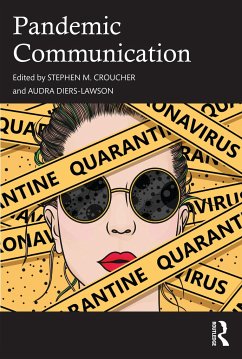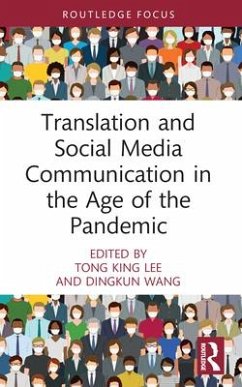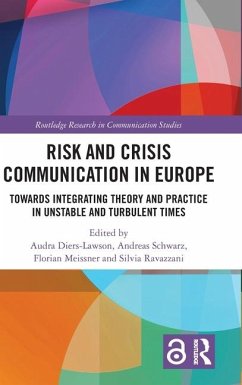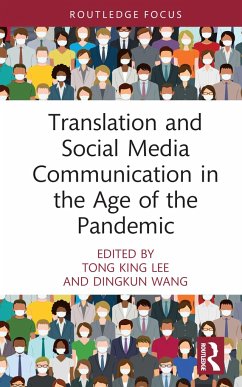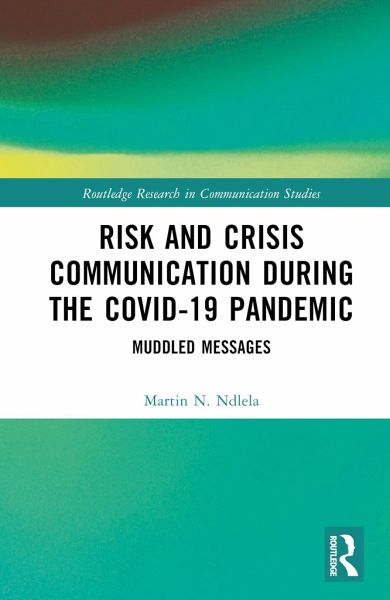
Risk and Crisis Communication During the COVID-19 Pandemic
Muddled Messages
Versandkostenfrei!
Versandfertig in 6-10 Tagen
154,99 €
inkl. MwSt.
Weitere Ausgaben:

PAYBACK Punkte
77 °P sammeln!
This book examines the challenges of communicating messages during the COVID-19 pandemic and provides recommendations for managing future global health crises.Given that outbreaks, epidemics, and pandemics are global crises that require global solutions, the book suggests that the world community needs to build resilient crisis management institutions and message management systems. Through international case studies, in-depth interviews, and textual, content, narrative, and document analysis, the book provides comprehensive accounts of how normative risk communication strategies were invoked,...
This book examines the challenges of communicating messages during the COVID-19 pandemic and provides recommendations for managing future global health crises.
Given that outbreaks, epidemics, and pandemics are global crises that require global solutions, the book suggests that the world community needs to build resilient crisis management institutions and message management systems. Through international case studies, in-depth interviews, and textual, content, narrative, and document analysis, the book provides comprehensive accounts of how normative risk communication strategies were invoked, applied, disrupted, questioned, and changed during the COVID-19 pandemic. It explores themes including crisis preparedness, outbreak communication, lockdown messages, communication uncertainty, risk message strategies, and the challenges of information disorders. It argues that trust in supranational and national institutions is crucial for the effective management of future global public health crises.
A thorough assessment of the multiple challenges faced by public health authorities and audiences during the COVID-19 pandemic, this book will be of interest to researchers, practitioners, and students in the field of Risk, Crisis and Health Communication and Public Health and Disaster Management.
Given that outbreaks, epidemics, and pandemics are global crises that require global solutions, the book suggests that the world community needs to build resilient crisis management institutions and message management systems. Through international case studies, in-depth interviews, and textual, content, narrative, and document analysis, the book provides comprehensive accounts of how normative risk communication strategies were invoked, applied, disrupted, questioned, and changed during the COVID-19 pandemic. It explores themes including crisis preparedness, outbreak communication, lockdown messages, communication uncertainty, risk message strategies, and the challenges of information disorders. It argues that trust in supranational and national institutions is crucial for the effective management of future global public health crises.
A thorough assessment of the multiple challenges faced by public health authorities and audiences during the COVID-19 pandemic, this book will be of interest to researchers, practitioners, and students in the field of Risk, Crisis and Health Communication and Public Health and Disaster Management.






